Origin Education
Burundi
Details
Place in World Production:
Average annual production:
Common Arabica varieties:
Key Regions:
Harvest Months:
Burundi Coffee History
Coffee Production as Economic Development
Belgians first introduced Arabica trees to Burundi in the early 1930s. While indigenous people were mandated to grow coffee under Belgian rule, coffee production persisted after independence because many saw coffee cultivation as a route to a better life.
Upon gaining independence in 1962, the young government invested significant resources in its coffee industry with assistance from the World Bank. Nationwide, the country launched an ambitious program constructing coffee washing stations and planting trees. Their efforts bore [coffee] fruit; coffee production increased rapidly from independence in 1962 until the early 1990s.
Civil War Uproots Coffee Development
Unfortunately, Burundi was rocked by a civil war from 1993 to 2005. During the conflict, many people were displaced from their land and most coffee trees were neglected. Many trees were also casualties of war and were destroyed along with the villages where they once grew.
Those who continued to cultivate their trees experienced immense difficulty getting their coffee to market due to Burundi’s geography. Burundi is a landlocked country and even during peacetime, coffee must often travel long distances on often unmaintained roads. Even after reaching a neighboring country, coffee must then travel even further to one of that country’s ports. The cost of transporting coffee by land from Burundi to the closest ports can be exorbitant. Just getting to a port can sometimes cost more than shipping that same coffee on cargo ships to the Americas or Europe. Compounding these financial burdens, wartime often meant farmers faced more danger on the journey.
Economic Opportunity Through Coffee
The civil war officially ended in 2005, and the first president to be democratically elected since 1993 was sworn in. With a return to a more peaceful time, Burundi also began to return to investing in the development of its coffee industry. Especially in the wake of a long and tumultuous conflict, coffee production could offer many people a chance at new beginnings and more financial success.
The coffee renaissance in Burundi also saw an increased focus on specialty coffee production. In 2005, both the government and international private companies began investing in the coffee sector. Influenced by the growing field of specialty coffee—and the earning potential of high-quality coffees—new initiatives emphasized producing higher quality coffees. At the same time, smallholder producers sought increased self-determination and began to organizing themselves into cooperatives. Cooperatives would later be another source of agricultural information, inputs and financial assistance for farmers.
Coffee Production Today
Today, Burundi’s coffee industry is fueled by 600,000 smallholders. Since the income from most smallholder farms supports entire families, close to 5 million people depend on the profits of smallholder coffee farms.
To put that in perspective: the entire population of Burundi is a little under 11 million people. In other words, smallholder coffee producers and their families comprise almost 50% of the total population.
Coffee Infrastructure
Coffee is of paramount importance to families and the country at large. Considering this, improving and expanding coffee infrastructure is not just a way to improve incomes, it is a way to revolutionize the earning potential of an entire nation.
Building washing stations and expanding agricultural extension work can be great ways to improve coffee quality. Washing stations are pivotal in improving cup profile standards and the global reputation of Burundian coffee.
Both state-owned and private actors drive Burundi’s coffee industry and play key roles as washing station management companies and exporters. State-owned companies are called Sogestals, short for “Sociétés de Gestions des Stations de Lavage” (Washing station management companies). Privately-owned companies can operate under a variety of different names.
It is important to note that, in concert with washing station management companies, washing station managers also play an important role in producing high quality specialty coffee. Managers oversee farmer education, aid in the implementation of good economic practices and help farmers implement best agricultural practices. They also collaborate with producers to ensure everyone has access to the necessary tools and inputs—and the knowledge of how to best use them.
Credit: Origin Educations are courtesy of our supplier, Sucafina Specialty.


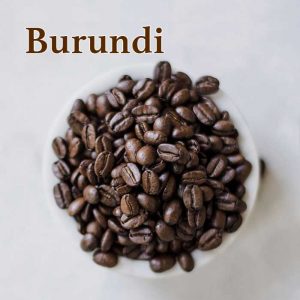
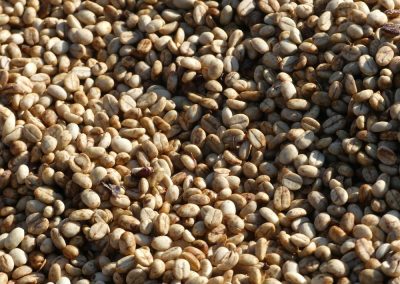
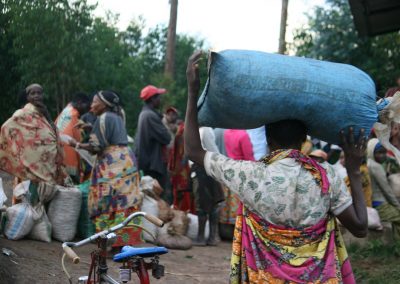
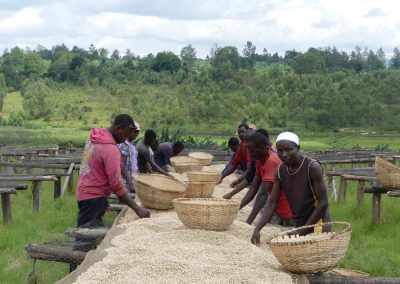
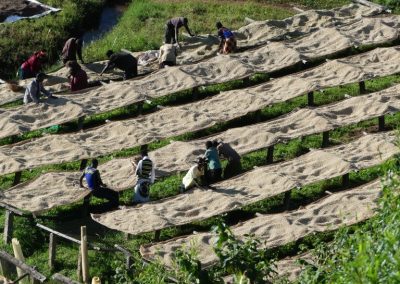
Reviews
There are no reviews yet.